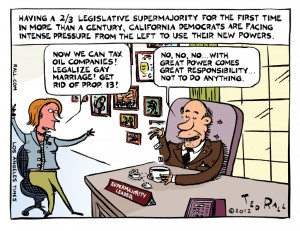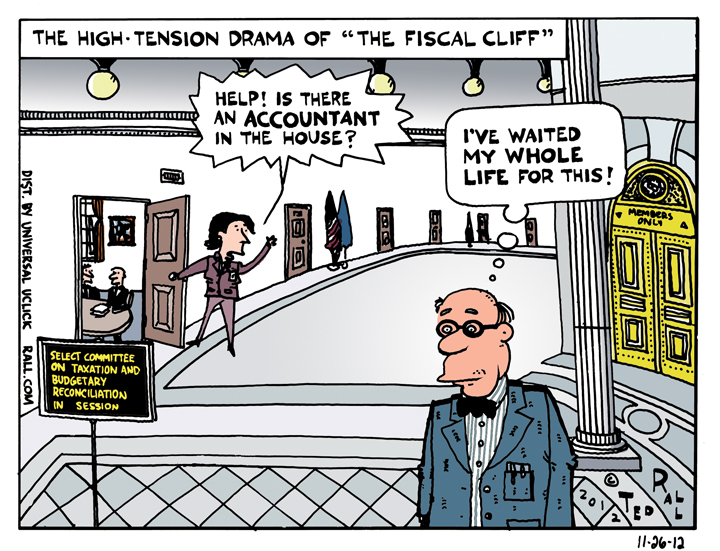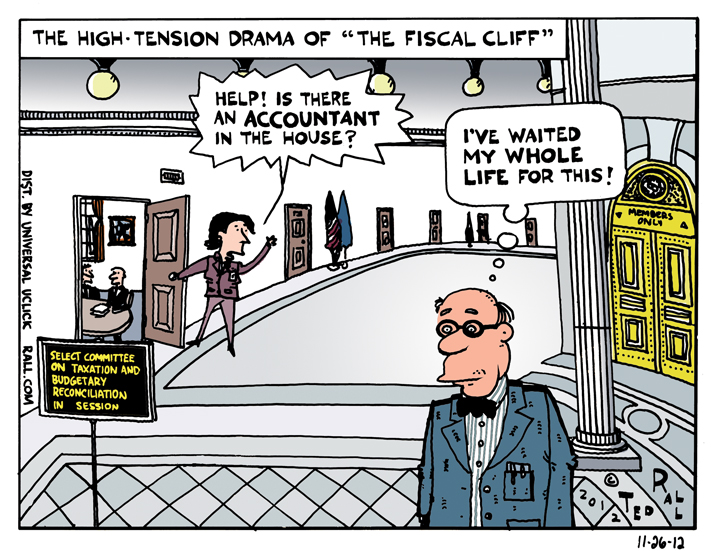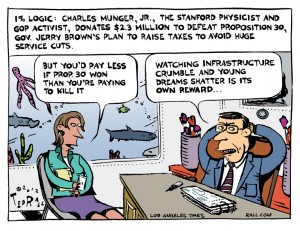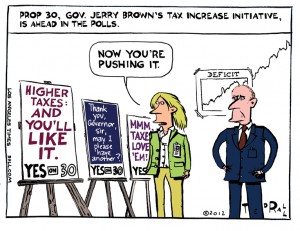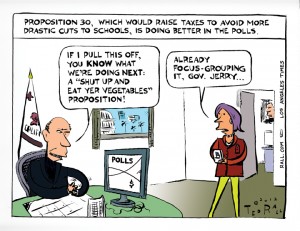Six Weeks After Reelection, Obama Sells Out Liberal Democrats
After the election Kerry Eleveld wrote a piece for The Atlantic titled “Why Barack Obama Will Be a More Effective Liberal in His Second Term.”
“In response to their initial disappointment with the president’s early performance, many progressives speculated that Obama was just waiting for a second term to be more liberal,” he said. That was true. They were.
Eleveld continued: “A more likely explanation is that Obama was still finding his groove, figuring out which levers worked best for him in the context of governing the nation. And in some ways, he was still developing the courage of his convictions.”
That, it turns out, was false. He wasn’t.
You can’t develop convictions that you don’t have in the first place.
It’s hard to remember now, more than six weeks later, but there was once a time (six long weeks ago) when liberal Democrats who naïvely chose to ignore Obama’s consistently conservative first term, his consistently conservative career in the Senate, and his consistently conservative pre-politics career as a University of Chicago law professor, seriously believed that his reelection would lead to a progressive second term.
“It’s time for President Obama to assume the Roosevelt-inspired mantle of muscular liberalism,” Anthony Woods wrote in The Daily Beast. “This is his moment. He only has to take it.”
It’s his moment, all right. And he’s taking it. But when it comes to Obama, liberals are once again guilty of some major wishful thinking. Obama’s economic policies are closer to Herbert Hoover than Franklin Roosevelt.
“With re-election safely behind him, we hope Obama will be bolder in his second term,” Peter Dreier and Donald Cohen wrote in The Nation.
Again with the Hope!
Change, not so much.
Race doesn’t matter. Looks don’t matter. Age doesn’t matter. Style doesn’t matter. Only one thing matters when you’re electing a politician: policy. And the willingness and ability to carry it out. Everything you needed to know about Barack Obama boils down to the fact that he voted nine times out of ten to fund the Iraq war, at the same time that he was giving speech after speech pretending to oppose it. And that was before he won in 2008.
It didn’t take long for Obama to sell out the liberal base of his party the first time. Everything became clear in December 2008, when his cabinet picks didn’t include a single liberal. Well, here it is, December 2012, and can’t get fooled again but we did, as George W. Bush would sorta say.
Wait a minute: I thought Obama was a Democrat. So why is he appointing a Republican as secretary of defense? Not just a Republican, but a homophobe? In 1998 Republican Senator Chuck Hagel criticized President Clinton’s nominee for ambassador to the sensitive strategic hotbed of Luxembourg not only for being gay, but for being “openly, aggressively gay.” Gay rights groups demanded that Hagel “repudiate” his bigoted comments, and he dutifully did so, but the point is that a truly progressive Democratic president would never have appointed a gay-bashing right-wing Republican in the first place. Yeah, America has changed, but it wouldn’t be that hard to find a liberal Democrat who thought gays and lesbians were real human beings back in 1998.
The “fiscal cliff” negotiations have led to another replay of Obama’s 2008 sellout, this one on economic fairness. Throughout the 2012 campaign the president promised to raise taxes on the top 2% of American households, those earning over $250,000 a year. As of November 9th he was still “sticking to his guns,” calling his stance nonnegotiable. On December 17th, however, without the defeated Republicans even having to propose a counteroffer, Obama pulled a classic Democratic negotiating-against-himself maneuver. Not only did he offer House Speaker John Boehner to protect the spectacularly wealthy taxpayers who earn up to $400,000 from a tax hike, he quietly sold out senior citizens by gutting the current system that calculates cost-of-living increases for Social Security and other federal entitlement programs.
At first, few people would notice Obama’s switch to a so-called “chained consumer price index.” (Under the new system, if the price of steak goes up, the government assumes you’ll switch to hamburger—so it doesn’t count as inflation.) This year, for example, the inflation rate under the chained CPI is 0.3% less. But inflation is exponential and the effect is cumulative. By the time you hit age 92, you’d lose an entire month of Social Security benefits each year.
This, remember, was the president who was supposed to bust out as an FDR-style crusading liberal ready, willing and able to fight the right-wing Republicans and stand up for ordinary Americans.
The good news is, the anticipation is over. Liberals who worried that Obama would sell them out need worry no more. Not so deep down, they knew this would happen. Now they can settle down for four more years of depressing Republican-lite kowtowing to corporations and the one percent.
I know what they’re thinking. Things would be even worse if Mitt Romney had won.
I wouldn’t be so sure.
Policy-wise, a Romney administration would have been pretty much the same as Obama’s second term. Who knows, he might have picked Chuck Hagel as Defense Secretary.
In terms of building the political Left, a President Romney would have galvanized liberals and progressives to fight for a fairer society that treats everyone equally and with dignity. Obama, his sellouts, and his faux liberal apologists represent two steps backwards for progressivism.
(Ted Rall is the author of “The Book of Obama: How We Went From Hope and Change to the Age of Revolt.” His website is tedrall.com.)
COPYRIGHT 2012 TED RALL

